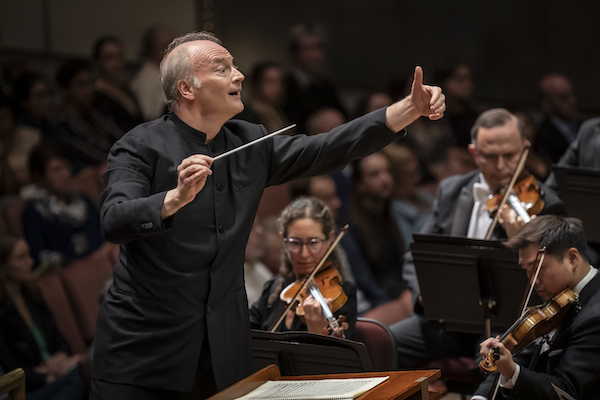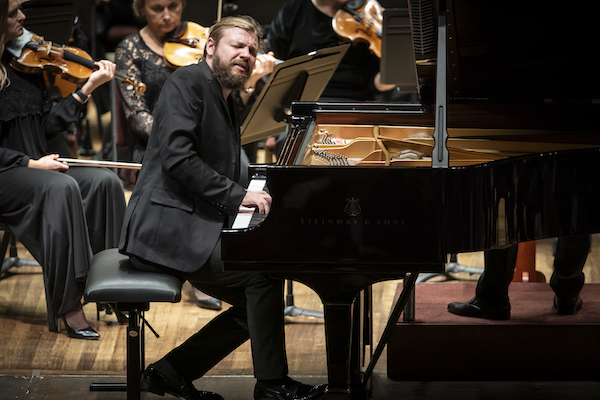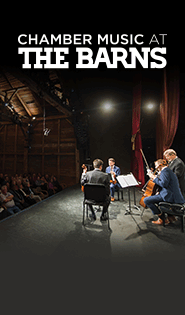Usual suspects avoided in Noseda’s Rachmaninoff program with NSO

Gianandrea Noseda conducted the National Symphony Orchestra in an all-Rachmaninoff program Thursday night at the Kennedy Center. Photo: Scott Suchman
Gianandrea Noseda has devoted the first subscription concerts of the National Symphony Orchestra season with a tribute to Sergei Rachmaninoff, born 150 years ago last spring. The Russian composer tends to be represented by the same handful of pieces. This superlative program, heard Thursday night in the Kennedy Center Concert Hall, cleverly avoided all of them.
Noseda, taking up the microphone for one of his charming concert introductions, cast the evening as a traversal of three phases of Rachmaninoff’s life. From his youth came the tone poem The Rock, composed in the summer of 1893, when the 20-year-old composer graduated from Moscow Conservatory. Inspired by Anton Chekhov’s short story On the Road, the piece narrates a missed connection between two travelers on a snowy Russian night.
Opening with the somber, intense unison of the low strings, the piece moved quietly, with delicate contributions from horns, harp, and flute. Although the NSO played this rarely heard piece in 2018 in not the most arresting performance, Noseda brought out the understated, painterly side of the score, which Rachmaninoff dedicated to Rimsky-Korsakov. The musicians played the piece’s emotions close to the vest, saving the largest climax for the very end, a loud outburst with brass finally unleashed.
From the end of Rachmaninoff’s life, which he spent in the United States, came the lesser-heard Piano Concerto No. 4, premiered by the Philadelphia Orchestra in 1927. (A few years later, in 1940, Rachmaninoff played his Piano Concerto No. 2 here in Washington, to open the NSO’s season.) Russian pianist Denis Kozhukhin, who made his NSO debut in 2018 in the composer’s Piano Concerto No. 3, attacked the opening theme, in huge block chords, with unbridled power.

Denis Kozhukhin performed Rachmaninoff’s Piano Concerto No. 4 with the NSO Thursday night. Photo: Scott Suchman
Kozhukhin played the third version of this concerto, made by Rachmaninoff in 1941, when he was almost 70 years old. The first movement had the typical Rachmaninoff-saccharine second theme, which Kozhukhin wisely kept moving, refusing to wallow in its excesses. The NSO powered an exciting climax with a crescendo of Hollywood sweep, crested by a wall of violin sound. This false ending calmed again, revealing a series of ethereal woodwind solos.
The second movement, often linked to the jazz-inspired influence of Gershwin, had a world-weary, sighing coolness, led by Kozhuhkin’s understated playing. The surprise middle section, with suddenly blaring brass, provided the only shock. The lively Finale teetered on the edge of frenzy, as Noseda and the NSO struggled to keep pace with their mercurial soloist’s escapades at the keyboard. The sense of struggle in this musical race brought the work to a thrilling conclusion.
Kozhukhin, who has had an international career for over 20 years, spoke out against Putin’s decision to invade Ukraine last year, saying on social media that he was “against this regime and its actions.” In that context, the pianist’s encore, the final movement (“In Church”) from Tchaikovsky’s Children’s Album, sang out like a whispered prayer for peace.
From the middle of Rachmaninoff’s life came his choral symphony The Bells, from 1913. Vassily Sinaisky led the NSO’s last performance of this extraordinary work, back in 2015. Rachmaninoff set a Russian version of Edgar Allan Poe’s poem “The Bells” by Konstantin Balmont, who transformed Poe’s original into something quintessentially Russian rather than merely translating it.
The silver sleigh bells of the first movement, given chiming voice by the unusual combination of pianino (upright piano), celesta, and harp, recalled the much earlier wintry sounds of The Rock. One of a talented trio of vocal soloists, Pavel Petrov’s sweet-toned tenor captured the childlike innocence of the poetry, occasionally swamped in sound by the large chorus and orchestra.
A lush melody played in cello and viola introduced the second movement, about golden wedding bells, which featured the shining soprano of Elena Stikhina in an extensive solo. Her dramatic voice carried easily over the amassed forces but was also profoundly musical in soft passages. Bass-baritone Alexey Markov was equally opulent in tone in the dirge-like fourth movement, recalling the tolling of death knells but capped by a rhapsodic apotheosis in its beatific shift to the major mode.
In the extensive choral part, especially the all-choral third movement, the large forces of the Choral Arts Society of Washington provided a startling range of sound, from warm and nostalgic humming to apocalyptic thunder. The ensemble is searching for a new music director after conductor Jace Kaholokula Saplan lasted only one season, a parting of the ways reportedly resulting from a difference in artistic vision. Former music director Scott Tucker, who was able to save the day and prepare the chorus for these performances, took a well-deserved bow.
The program will be repeated 8 p.m. Friday and Saturday. kennedy-center.org



Posted Sep 29, 2023 at 1:25 pm by Mike
Do we know the name of the lovely piece that Kozhukhin played for his encore?